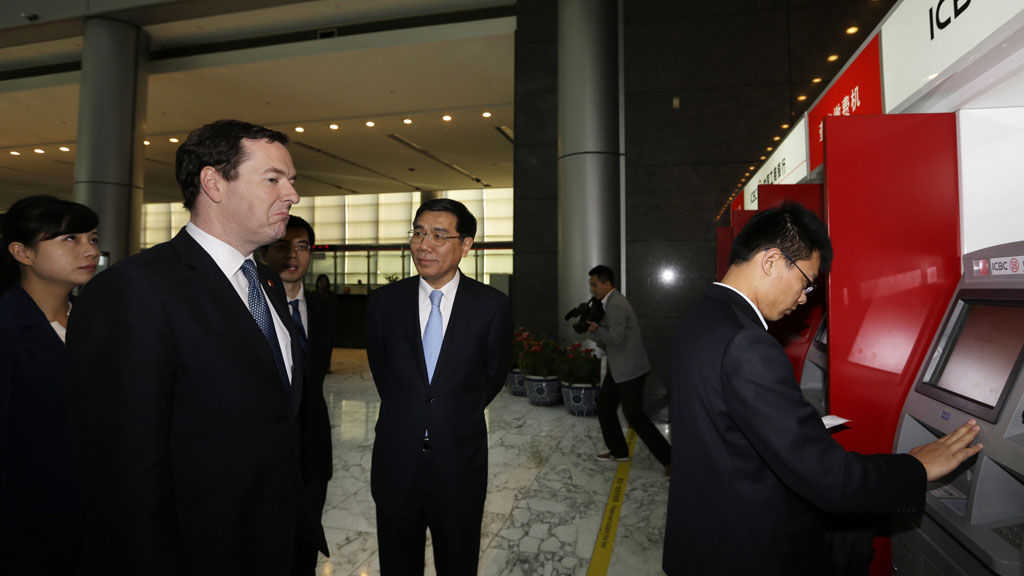Come to Britain, Osborne tells China’s banks
China’s banks will be able to set up branches in Britain under an agreement reached by Chancellor George Osborne during a visit to Beijing.

Following two days of talks, Mr Osborne said the move was “good for UK jobs and investment”.
Britain’s financial regulator, the Prudential Regulation Authority, will hold discussions with Chinese banks in London about setting up “wholesale” operations in the UK.
These branches will be able to lend to companies, but will not have dealings with members of the public.
The fact that they will be branches, rather than subsidiaries, means the British taxpayer will not be liable if they get into financial difficulty.
As they are state-owned, the Chinese government would have to step in. But they will be more lightly regulated in Britain than subsidiaries.
Mark Yeandle, associate director of the commercial think tank, Z/Yen, told Channel 4 News the development shows that China’s banks “want to have a more global presence in the west as well as Asia”.
He added: “To set up this operation in a big financial centre is going to be a good step for them. It will be interesting to see how fast UK regulators issue branch licences to Chinese banks and the conditions put on that.”
Global hub
Under the agreement, George Osborne also hopes to reinforce London’s position as the global hub for trading in the Chinese currency, the renminbi (RMB).
London will become the first place outside China and Hong Kong to be granted an RMB foreign investor quota, initially set at 80 billion RMB (£8.2bn).
Mr Osborne said: “A great nation like China should have a great global currency.
“Today we agreed the next big step in making London – already the global centre for finance – a major global centre for trading and now investing the Chinese currency too.
FactCheck: Osborne and Boris in China
“More trade and more investment means more business and more jobs for Britain.”
The agreement is the result of talks between Mr Osborne and his Chinese counterpart, Vice-Premier Ma Kai.
‘Quite a big impact’
Mr Yeandle said: “The covertibility of the currency would certainly have quite a big impact on the UK. Having a big exchange for it here rather than Hong Kong can only lead to increased liquidity and that has to be good for UK plc.
“It will potentially increase London’s importance as one of the three big financial centres in the world, and London already makes a big contribution to GDP.”
The RMB will be able to be traded against the pound, rather than having to go through the dollar, which will reduce transaction costs.
Until now, investors in London who want to buy Chinese shares and bonds have had to do so via Hong Kong, which can mean higher costs.
Data from financial services provider SWIFT shows London accounts for 62 per cent of RMB trades outside China and Hong Kong.
On Monday, Mr Osborne announced that Britain would relax visa rules for Chinese visitors.
-
Latest news
-
Windrush scandal: returning to the UK after a forty year wait6m

-
Netanyahu ‘survival’ depends on ‘expanding war’ says head of Palestinian National Initiative5m

-
Proposed law change could strip parental rights from paedophiles5m

-
Hugh Grant settles privacy lawsuit against The Sun newspaper publisher2m

-
Post Office Scandal: what did top executive know?6m

-




